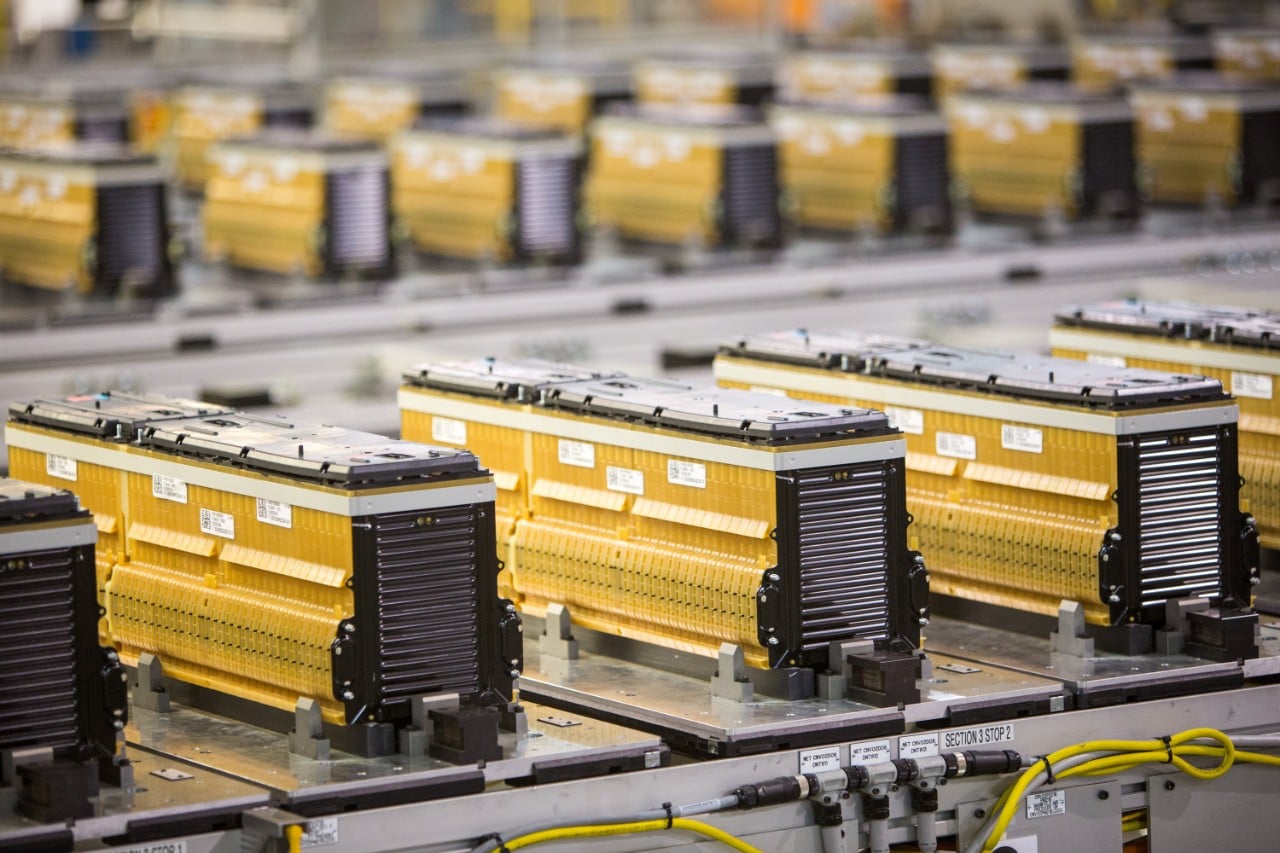Energy
Biden Administration Rolls Out $3 Billion EV Battery Program

- The Biden administration will invest nearly $3 billion to fund domestic battery manufacturing projects in the coming months, the Department of Energy announced Friday.
- “As electric cars and trucks continue to grow in popularity within the United States and around the world, we must seize the chance to make advanced batteries — the heart of this growing industry — right here at home,” Secretary of Energy Jennifer Granholm said in a statement Friday.
- The production of electric vehicle batteries and large-scale industrial battery storage technology has increased in importance over the last year as Biden has outlined a series of EV-related commitments.
- “If the United States were to diversify our sources of critical minerals or increase domestic extraction, we would still be reliant on China for processing before use in end-product manufacturing,” the White House admitted in a June supply chain report addressing domestic battery production.
The Biden administration will invest nearly $3 billion to fund domestic battery manufacturing projects in the coming months, the Department of Energy announced Friday.
The federal government issued two notices of intent, outlining plans to provide $2.91 billion for U.S. battery production for both electric vehicles (EV) and industrial storage infrastructure, according to the Energy Department announcement. The agency said the funds would go towards material refining, production plants, battery cell manufacturing facilities and recycling programs related to batteries.
The funding will also ensure the creation of “good-paying clean energy jobs” across the country.
“As electric cars and trucks continue to grow in popularity within the United States and around the world, we must seize the chance to make advanced batteries — the heart of this growing industry — right here at home,” Secretary of Energy Jennifer Granholm said in a statement. “With funding from Bipartisan Infrastructure Law, we’re making it possible to establish a thriving battery supply chain in the United States.”
The bipartisan infrastructure bill, which President Joe Biden signed in November, included approximately $7 billion for the domestic battery supply chain, the Energy Department said.
The production of electric vehicle batteries and large-scale industrial battery storage technology has increased in importance over the last year as Biden has outlined a series of EV-related commitments. For example, the president vowed to ensure 50% of private car sales are electric by 2030 and that every addition to the federal governments’ massive vehicle fleet is an EV by 2035.
But the White House acknowledged that China controls an “outsized share” of global mineral refining capacity in a supply chain report published in June. Mineral refining is a key component for renewable energy technology including battery manufacturing.
“If the United States were to diversify our sources of critical minerals or increase domestic extraction, we would still be reliant on China for processing before use in end-product manufacturing,” the White House admitted in the report.
The Energy Department announcement Friday is part of the White House effort to decrease reliance on foreign minerals, refining and production capacity for the green policies it is aggressively forwarding. The plan is also in line with the administration’s blueprint to develop a “robust and secure domestic industrial base” for lithium batteries by 2030.
However, activists have consistently put up legal roadblocks for mining in the U.S. and protested such projects, arguing that it isn’t good for the environment.
“We now find ourselves in a situation where the materials we need in order to accomplish our goals can be held hostage by geopolitics,” Mckinsey Lyon, the vice president of external affairs at Perpetua Resources, previously told the Daily Caller News Foundation in an interview.
Perpetua has filed paperwork with several state and federal agencies to begin mining antimony in Idaho, but hasn’t yet gained approval because of the lengthy regulatory process. At its current rate, the company expects to receive mining approval 17 years after it first discovered antimony — which isn’t currently mined anywhere in the U.S. and is essential for battery technology — in an old central Idaho gold mine.
In 2021, the share of total light-duty vehicle sales that were electric, hybrid or plug-in hybrid grew to 11%, according to the Energy Information Administration. Global traditional vehicle stock is expected to peak in 2038.
The Energy Department didn’t immediately respond to a request for comment from the DCNF.
All content created by the Daily Caller News Foundation, an independent and nonpartisan newswire service, is available without charge to any legitimate news publisher that can provide a large audience. All republished articles must include our logo, our reporter’s byline and their DCNF affiliation. For any questions about our guidelines or partnering with us, please contact [email protected].

